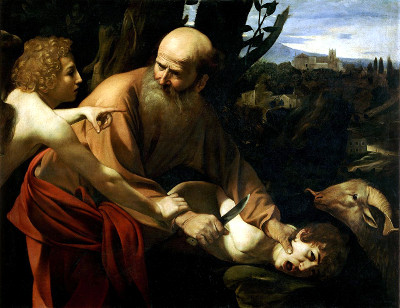
Guest contributor: Ed Trego
Q: Who made the world?
A: God made the world.
Q: Who is God?
A: God is the creator of Heaven and earth, and of all things.
Q: What is Man?
A: Man is a creature composed of body and soul, and made to the image and likeness of God.
Q: Why did God Make You?
A: God made me to know Him, to love Him, and to serve Him in this world, and to be happy with Him forever in Heaven.
Many Catholics will recognize the questions and answers above as part of the Baltimore Catechism. Originally issued by the Third Plenary Council of Baltimore in 1885, the Baltimore Catechism was used as a religious teaching document for children in Catholic schools from its’ publishing until the mid 1960’s.
As a convert to Catholicism I had never read, or even seen, the Baltimore Catechism since my baptism into the Church in 1971. I had heard of it. Mostly from those who had learned it in grade school. Most had little to say about it, so I never really looked at it until recently. I still haven’t read the entire catechism but I’m very strongly attracted to the simplicity it employed. No fancy words; no deep theological dissertations; just plain simple truth. Who made the world? God made the world. It doesn’t get much more simple than that.
For several years now I’ve been studying theology and have developed a very deep love for the subject. What better way to spend time than learning all you can about our God and Savior. I’ve read many of the early Church Fathers as well as many of the great theologians throughout history. I’ve very much enjoyed their works, even though some are admittedly quite difficult. I’ve spent many hours reading and re-reading some of Saint Augustine’s work because the depth is so great that it simply can’t be taken in by one reading. There are so many levels to his works, and to the works of many others.
The Bible is very much the same way. I’ve rarely read the scriptures without seeing something I missed the last time I read the same scripture. Or perhaps just making a connection that I hadn’t made before, increasing my understanding. There is great depth in the word of God.
Recently, a family crisis placed me on my knees before God, praying for the life and recovery of a loved one. I found that my theological studies and all of the reading I have done was useless. The words wouldn’t come. I thought of many prayers of the great theologians and spiritual writers, but they were no good either. I had to go back to the simple pleading that my heart was trying to place before God. In fact, I’m not sure the words even mattered; it was my desire for the well-being of my loved one that I, and God, were concerned with. He knew why I was before Him before I ever mouthed a word. All the fancy words and theological platitudes would have done nothing to make Him care any more than He already cared.
I’ve thought about that many times since and I’ve come to the conclusion that we are truly missing the greatest relationship we can possibly have with God if we forget the simplicity of prayer and love of God. “At that time the disciples came to Jesus, saying, ‘Who is the greatest in the kingdom of heaven?’ And calling to him a child, he put him in the midst of them, and said ‘Truly, I say to you, unless you turn and become like children, you will never enter the kingdom of heaven. Whoever humbles himself like this child, he is the greatest in the kingdom of heaven.’ (Matthew 18:1-4)
Jesus wasn’t saying we need to be childish, but child like. Children accept things as they are and trust totally. They don’t have the adult ideas and thoughts that we allow to cloud our relationship with God. We must overcome our urge to impose our wants and desires upon God’s will. Unfortunately we can never fully know or understand God’s will so we are operating out of a place of ignorance and arrogance when we propose to God how things should be.
Read the question again, “Why did God make you?” It wasn’t to outguess His will or to influence His plan for you. He didn’t make you to give advice and change to His will. He’s not all that interested in how you think things should be done. We, as humans, have a pretty miserable history when it comes to determining how things should or should not be done. God has the plan, we are simply part of it. He knows the whole story; we only gets to know bits and pieces of the story in this life. Remember the answer to the question; “God made me to know Him, to love Him and to serve Him in this life and be happy with Him forever in heaven.”
Can you appreciate simplicity of it? We aren’t responsible for writing the entire script. We aren’t even responsible for writing our portion of the script. We are responsible to do our absolute best to understand God’s plan for us and to follow His guidance at every opportunity. We need to turn ourselves over to God’s will and let him lead this dance called life. We can never go wrong following His lead.
There is a beauty in simplicity. Jesus was not a complicated man. He was quite clear in His teachings without hidden agendas or “gotcha” moments. He knew where He stood and everyone who knew Him also knew where He stood. Whether it was driving the money-changers out of the temple or confronting the religious leaders of the time, He pulled no punches. He never hid behind ambiguity or fancy words. He told it like it was; simply and to the point.
“And one of the scribes came up and heard them disputing with one another, and seeing that he answered them well, asked him, ‘Which commandment is the first of all?’ Jesus answered, ‘The first is, Hear O Israel; The Lord our God, the Lord is one; and you shall love the Lord your God with all your heart, and with all your soul, and with all your mind, and with all your strength. The second is this, You shall love your neighbor as yourself. There is no other commandment greater than these.” (Mark 12:28-31)
There is no guile or confusing language here. If you love God with all you are and your neighbor as yourself, you are close to heaven. When we consider these commandments there is a lot packed into them. Stop for a moment and consider what it means to love God with all your heart, all your soul, all your mind, and all your strength. It means you must turn to Him in all things and ask for His guidance. It means that you don’t concern yourself with the trivial details with which we so often clutter our lives. Disregard the unnecessary and focus on the importance of your relationship with God. There is no other relationship more important.
What does it mean to love your neighbor as yourself? I know there are times when I don’t love myself very much. Times when I’ve sinned, again, even though I try to avoid it. Times when I’ve let my human emotions direct my actions and have taken the wrong path. However, I am a creation of God made in His likeness and image as the Baltimore Catechism says quite simply. As such, I love myself not for my failures but for the same reason that God loves me. Because He chooses to and accepts that I am an imperfect creature burdened by the plague of original sin.
We must look as our neighbors in the same way. They will fail, just as we do. They will disappoint, just as we do. Can you imagine the disappointment of God when Adam and Eve fell victim to Satan’s temptations in the Garden of Eden? Yet He still loved them, cared for them and promised a redemption for them. We too, need to give our neighbors the same love and caring. Even when they disappoint, anger, or even hurt us. They are also Gods creations, flawed by original sin just as we are. Should we not offer them the same love and forgiveness that is offered to us”
“And you will know the way where I am going.’ Thomas said to him, ‘Lord, we do not know where you are going; how can we know the way?’ Jesus said to him, ‘I am the way, and the truth, and the life; no one comes to the Father, but by me.” (John 14:4-6) Look to Jesus, He is the way. Listen to Jesus, He is the way. Obey Jesus, He is the way. Simple rules to achieve incredible results.
Don’t, however, mistake simplicity for ease. Jesus gave us some very simple rules and guidelines but He also warned us that the path would not be easy. Saying we trust and believe in Jesus and following Him is sometimes fairly simple and, at times, even easy. But there are, and will be, instances when following Jesus will be anything but easy. Heaven is filled with martyrs who shed their blood rather than give up their simple trust and belief in Jesus. We too, will most likely be asked to endure at least some hardship on our way to happiness in heaven with God. “If any man would come after me, let him deny himself and take up his cross daily and follow me. For whoever would save his life will lose it; and whoever loses his life for my sake, he will save it.” (Luke 9:23-24)
Live life simply; love God completely; love your neighbor as yourself; follow Christ faithfully. The way may be difficult and trying, but it will never be complicated if we focus on what is important.
Q: Why did God Make You?
A: God made me to know Him, to love Him, and to serve Him in this world, and to be happy with Him forever in Heaven.
The above meditation is a chapter from Ed’s new eBook “The Narrow Gate”.
Available now for only $1.99 on Amazon,
and other fine publishers.
» Interested in the Baltimore Catechism? Look no further!





















